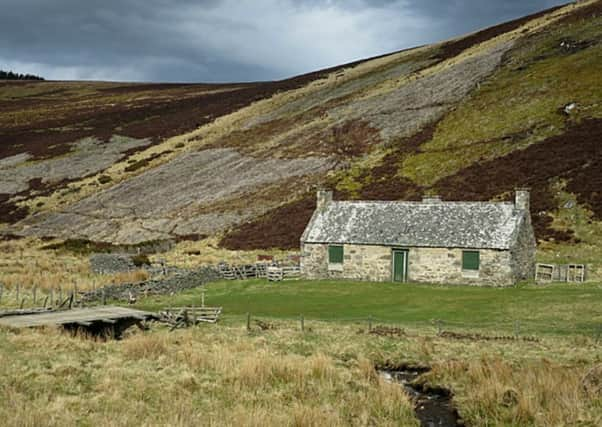Highland hideout of Britain's one-time most wanted man


Descriptions of Toplis were circulated far and wide. Look out for a man in a blue lounge suit, a fawn trilby hat and with a small moustache, the police said.
Also described as a sometime wearer of a monocle, his favourite greeting was listed as “hello dearie”.
Advertisement
Hide AdAdvertisement
Hide AdToplis, who had a string of convictions and guises, many that embellished his military career, found refuge in the Cairngorms. He went largely unnoticed, although suspicions were raised that a man playing the piano in an Inverness hotel one night was indeed the fugitive.
In Tomintoul, Moray, Topli, posed as a “casual labourer on the tramp” as the manhunt continued, according to accounts.
He hid out at a bothy, around two miles south of the village, but was rumbled when a plume of smoke was spotted coming from the chimney by gamekeeper John McKenzie.
McKenzie approached the bothy with John Grant, a tenant farmer, and Pc George Greig with what followed becoming known as the “Tomintoul Outrage”.
After being confronted, Toplis gave his name as George Williams, a recently demobbed American soldier. Then, without warning, he pointed his gun, a Mark 6 Webley, and opened fire on the three men, seriously wounding Grant and Pc Greig.
While McKenzie went for help, “Williams” calmly collected his belongings and cycled off towards Aberdeen, singing “Good-byee, don’t sigh-ee, wipe the tear, baby dear, from your eye-ee…”
The Scotsman, on 4 June, 1920, revealed that the “assailant… has been wandering the North Highlands for the past five weeks.
“Some excitement was created in the Aberdeen district… when it became known that the man who committed the outrage at Tomintoul bore a remarkable resemblance to Percy Toplis.”
Advertisement
Hide AdAdvertisement
Hide AdToplis, meanwhile, headed south, probably in a lorry, stopping in Edinburgh to pawn his watch.
On 5 June, 1920, the most wanted man in Britain, dressed in military uniform, stopped at the base of the Border Regiment at Carlisle Castle where he was given lodgings without question. After heading to Cumberland, the game was up for Toplis who was spotted reading a newspaper by a riverbank and shot dead by a pursuing police officer.
An earlier inquest into the death of taxi driver Sidney Spicer in Andover, Kent, who had been shot in the back of the head, found Toplis guilty in absentia of wilful murder – the first ruling of its kind in the UK.
There has been some disquiet over his conviction and death by police shooting.
After joining the Royal Army Medical Corps in 1914, Toplis served as a stretcher-bearer in Gallipoli, Greece, Egypt, Mesopotamia and India. In 1978, two journalists, William Allison and John Fairley, published The Monocled Mutineer, celebrating his part in the six-day mutiny at the army camp at Etaples in the north of France.
Toplis’ supposed role was dramatised in the Monocled Mutineer television series with actor Paul McGann taking on the lead role. Some have claimed he was framed for the murder of Spicer as a result of the unrest at the army base. However Jaynie Bilton, a distant relation of Toplis, claimed in her book that her relative was nowhere near Etaples at the time of the mutiny.
In Scotland, those who struggled with Toplis at that remote bothy near Tomintoul were commended for their bravery in 2015.
The grandsons of Pc Greig and John Grant collected the commendations on their behalf although no relatives of John McKenzie were found.